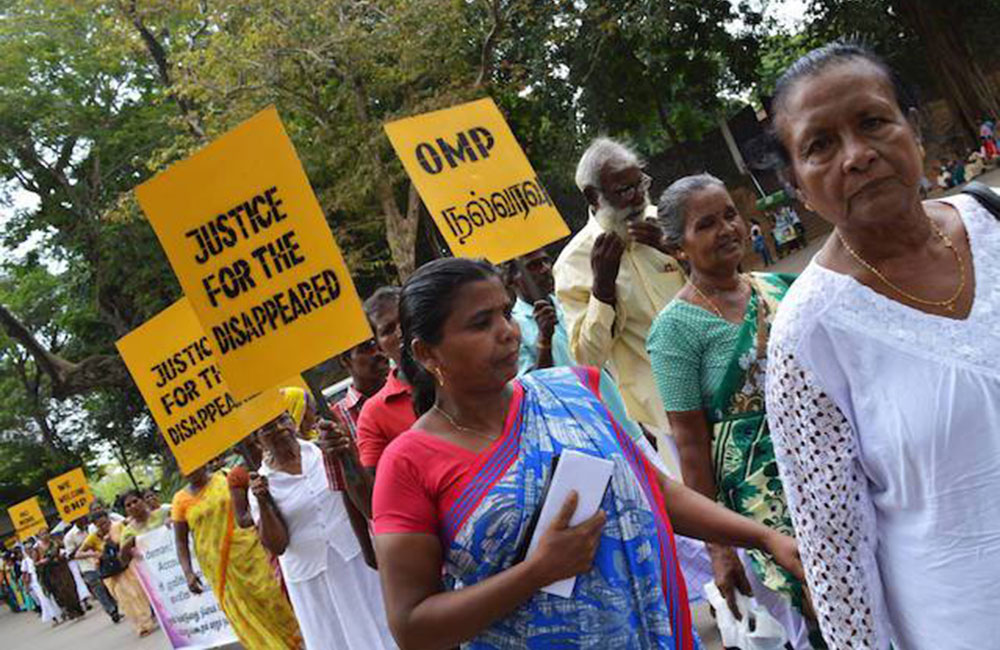The sudden appointment of Mahinda Rajapaksa as Prime Minister in October, and the ensuing constitutional crisis, means that human rights and guarantees of transitional justice may be in peril for the future, Amnesty International said.
In its annual human rights report, Amnesty highlighted many positive developments in the country that were initiated by the former government before it was ousted by president Sirisena in late October coup.
These included the long overdue setting up of the Office of Missing Persons, the passing of an Act to set up an Office of Reparations, and the return of some of the private land in the north that had been seized by the military.
"In Sri Lanka, Sandhya Eknaligoda, a prominent campaigner for justice for families of the disappeared, who has endured years of hostility and smear campaigns, won an important court victory after a hardline Buddhist monk who had threatened her was imprisoned for six months. In September, President Maithripala Sirisena ordered the arrest of an army officer over the 2010 enforced disappearance of Sandhya’s husband, Prageeth Eknaligoda," Amnesty International said.
However, with the political crisis showing no signs of coming to an end soon, independent observers are concerned on the effects it may have on the country's human rights and transitional justice mechanisms.

Leave your comments
Login to post a comment
Post comment as a guest